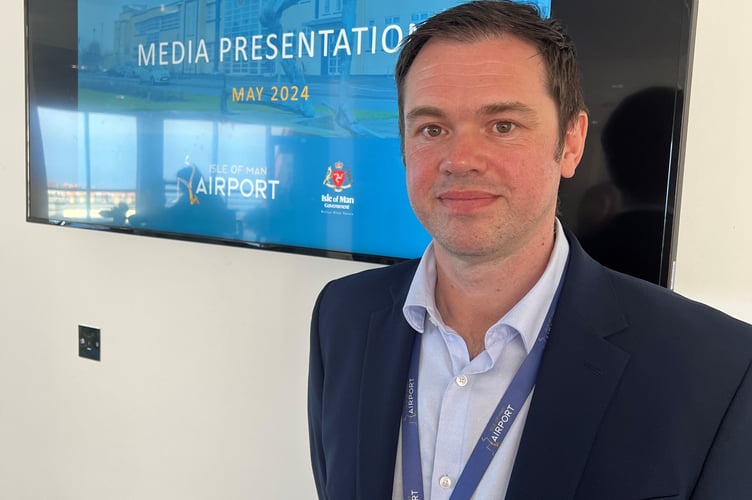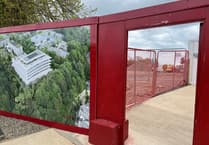Airport passengers could face longer queues through security at Ronaldsway.
New upgraded security rules have been introduced at all airports in the British Isles.
Larger airports are required to introduce new C3 scanners, which will mean passengers may not have to remove liquids and electrical goods from their cabin bags.
For smaller airports like Ronaldsway the C3 scanners are not mandatory - for now.
But it has still had to upgrade its current machines to C1 which means introducing new security procedures including more screening for cabin baggage.
Airport director Gary Cobb said: ‘C1 is currently what you would expect in security, but with some software upgrades. Because we're not going to C3 we will have to up our screening processes.
‘It probably means you will see more queues in security now.
‘It doesn't mean you’re going to have horrific queues going out through the door but whereas before you could get through in a minute, there'll be some times where you are talking five. We'll keep an eye on it.
‘Increased screening has already been implemented. We've not seen too many issues but we are seeing queues creep up a little.’
As well as increased cabin baggage screening, there has been a number of rule changes that will lead to additional security searches being carried out.

Rates of non-compliance could increase given the different rules applying at other airports that have gone over to C3.
Mr Cobb said: ‘I fully anticipate C3 being mandatory in the future. What that timeframe will be I don't know.
‘To be fair, I think it's further in the distance than I originally thought. That's just because the supply chain is so long and convoluted.’
Two machines will be needed at a cost of around £2m. But work will be needed to the current central search area to accommodate them - and that could cost millions more.
He said the upgrade to C3 will be contingent on Treasury funding approval.
Two machines are required so in case one breaks down or requires maintenance. And more staff may be needed to operate them.
In a separate move, Mr Cobb said he expected runway closures linked to air traffic control fatigue breaks to be lifted later this year.
Runway closures were introduced in June last year following staffing shortages in air traffic control, leading to some flight disruption.
They were subsequently reduced from five a day to two.
But Mr Cobb said the mandatory fatigue breaks may needed to be reintroduced temporarily for instance if rotas have to be changed to cover sickness absence.




.png?width=209&height=140&crop=209:145,smart&quality=75)
Comments
This article has no comments yet. Be the first to leave a comment.